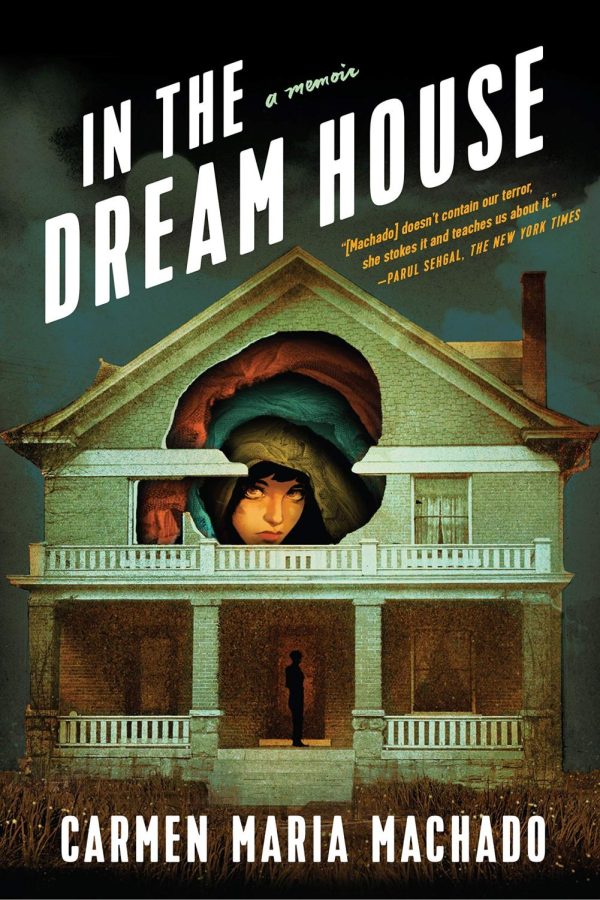District Book Removals
Parent complaints leads to withdrawal of books from school reading lists
More stories from Anna Grieshaber-Fjesme
In 2021, Leander ISD removed multiple books from the curriculum because of content parents found inappropriate. Titles such as “The Lawn Boy” and “In the Dream House” are books that are currently removed from reading lists because of inappropriate sexual content, abuse, violence and LGBTQ+ themes.
Rouse librarian Holly Hensley explains that every student, parent and administrator can formally challenge the placement of an instructional, this includes library books. In order to file a complaint, a form asking about the title, author, reason for removal, suggestions for a replacement, as well as any information and details the complainant wants to share. The book is then read and considered by a reconsideration committee, which consists of four parents, two teachers, librarian and principal.
“Libraries are voluntary spaces,” Hensley said. “No one is forced to check out any materials or forced to read a book.”
Hensley expresses that if there is a book someone disagrees with, whether it is personal preference or personal beliefs, there is nothing wrong with returning the book and simply not reading it.
“I’ve read many articles about the effects on students and it’s been interesting to see the different ways students react to news about censorship,” Hensley said. “ I’ve heard of students immediately seeking out the banned titles to read because they are curious about why the book was removed. I’ve heard of students who have spoken at school board meetings or written to the school board to share their concerns. I’ve also heard about book clubs being formed to read the titles being removed.”
English teacher John Manning at Rouse High School worries about how this affects his students’ education.
“They need to be able to make their own argument,” Manning said. “Students only understand what we show them.”
Manning believes teaching and showing students books and movies that include themes such as LGBTQ+, POC, and disabled characters teaches students differences in society.
Most students still have access to the internet, movies, other books and social media. Though it is dangerous for teenagers to receive potential misinformation that the latter contains, it is their most common source of information.
“To say that consensual sexual encounter between two people is wrong, but to be violent is okay and acceptable is disgusting to me,” Manning said. “To prefer some of these books while censoring others because they feature LGBT content is a really troubling move by the education system.”
Classics such as “V for Vendetta” by Alan Moore have been banned simply because they include LGBTQ+ topics. Many teachers, including Mr. Manning, reacted strongly to the banning of these books as they care a lot about their students. Furthermore, some of the classics that are taught, such as several Shakespeare books, include violence, sex and murder, yet these are considered “preferred texts.”
Some parents, on the other hand, worry about some of the graphic scenes that are exposed to their children. They do not believe that explicit sexual descriptions are necessary for their education, as well as they believe that other books deepen stereotypes about minorities.
“What concerns me when I review the lists of books that are given to my minority children as options to read, it seems as if all the ones that address any type of racial subject are from a point of abuse,” parent Laura Davis said.
Davis is a Latin-American woman with children in LISD. These books may spread awareness about what they might need to deal with, there are harmful stereotypes that do not change non-minorities’ perceptions of minorities. Davis is among many people that believe there needs to be a change of focus. Books including minority groups should offer achievements and successes, rather than their struggles.
“I think there should be a common standard of decency, and I believe that some of these books go beyond that,” Davis said.
Many parents like Davis have no issues with themes such as sex, sexual identity, abuse, and violence; the problem lies in how they are portrayed. They find issues with this as they deem it inappropriate for educational use. Though it is important to discuss and learn about these themes, several books do so in an indecent matter, graphically describing detailed sexual intercourse with vulgar and obscene language and actions, such as “In the Dream House” by Carmen Maria Machado. In this book, there are several scenes in which a sexual encounter between two women is graphically described, which has been an issue for many parents.
Because of parent complaints, books including themes such as LGBTQ+, sexual content, and abuse have been removed from reading lists. Several parents deem some of the books their children are reading too inappropriate for educational purposes. Teachers, librarians, and students have opposed this, comparing the situation to censorship.



